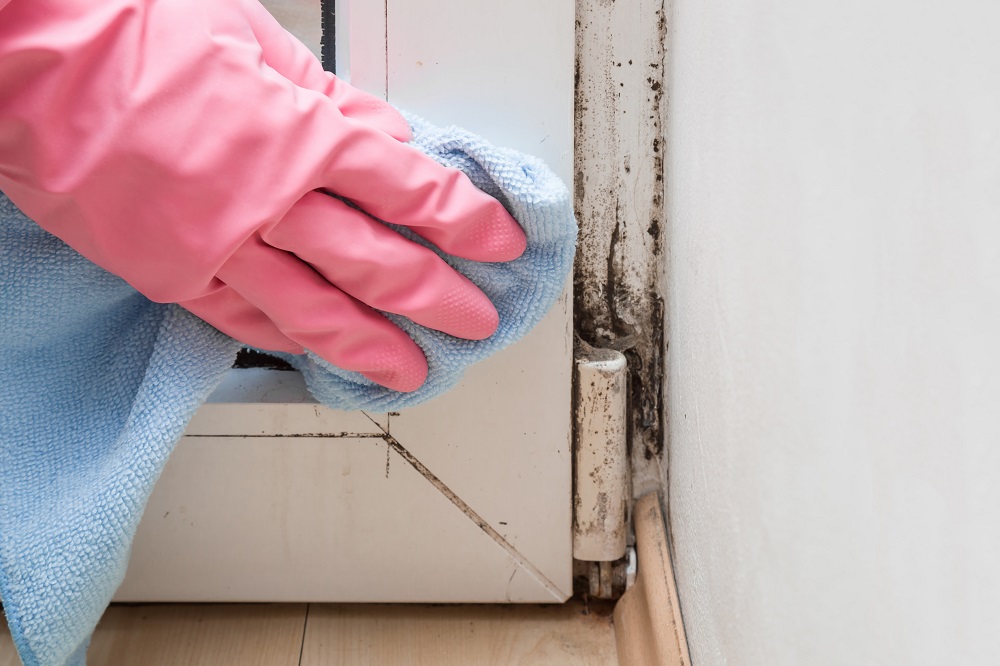When left unchecked, a minor mold infestation can become a major one and end up costing you thousands of dollars to have your home cleaned out properly. Mold can be dangerous for your health and a complete eyesore in your home. All in all, any homeowner needs to know how to deal with mold when the signs appear.
If not cleaned out properly, mold can leave a lasting problem with your property, and this can affect the resale value of your home as a history of this problem is a huge turn-off for buyers. It’s clear to see that mold is both a health risk and a costly annoyance too, but when do you know it’s time to act?
Here are six signs you should seek mold assessment services:
1. Water damage
Mold spores love to grow in damp areas. Anywhere there is water damage within your home, there is a chance there could be mold. Whether you’ve experienced flooding or a burst pipe you didn’t know you had, the presence of water and moisture in your home can create a nasty mold situation.
If you’ve experienced any sort of water damage, large or small, you might want to seek the help of a specialist for an assessment. You can look into services in your area, for example, mold remediation West Palm Beach.
2. Mold smell
Mold and mildew have a definite odor, a smell you’ve probably smelled before in a musty old basement. More often than not, the odor is rather faint and not very overwhelming. This doesn’t necessarily mean the mold isn’t serious.
The only way to determine this is to bring in a professional. If you notice any off-putting smells in areas of your home and have an inclining that it might be because of mold and mildew, you may have an issue that you just can’t see.
3. Visible mold
Obviously, the most tell-tale sign is if you can visibly see mold growing. The difficulty here is being able to tell how serious the matter is, as mold can vary quite drastically in appearance. Mold can often look yellowish or green, but it can also appear black, white, brown, red, pink, and also blue or purple. (1)
All mold should be treated the same when it comes to removing it in your home. There are methods you can use, such as mold removal cleaning products and removing any soft or porous materials from your homes like carpet or wall insulation. A professional is still your best bet.
If you see any of these colors and see the mold visibly expanding over time, you should consider bringing in a mold remediation specialist.
4. High humidity
If your home or the area in which you live is typically quite humid due to weather or perhaps an HVAC system that isn’t working properly, you’re going to be more vulnerable to mold. This is due to mold thriving in humidity. Humidity produces moisture and, just like water damage, creates a mold-friendly environment. If the humidity in your home is over 60%, the risk of mold is relatively high. It’s recommended to keep the humidity levels in your home between 30-50%. (2)
If you have moved into a home that has high humidity or have recently been experiencing higher levels of humidity, then it might be time for a professional to inspect your home for any mold damage.

5. You’ve had mold before
Mold can be annoyingly resilient, and people sometimes believe that by cleaning any visible mold with DIY methods, the problem will go away. But mold colonies can spread to different areas of your house that you can’t reach or see, such as between walls, and even can make their way into the ductwork. In these instances, a mold remediation specialist is the only viable option for getting rid of the problem.
If you’ve dealt with mold more than once in the last few years, it might be coming back because there’s a deeper problem that can also be solved with the help of a specialist.
6. Allergies
If you or anyone you live with are experiencing allergy symptoms such as a scratchy throat, congestion, headaches, skin irritation, or any other allergic reactions, this could be a sign of the existence of mold. In fact, any dampness in your home can be the cause of coughing, wheezing, and even asthma. (3)
If the signs add up
If you have experienced any of the above signs in your home, there is a high chance you have a mold problem. Any of these would be cause enough to seek the services of a mold remediation specialist. When it comes to mold, prevention is a much stronger deterrent than anything else, so early intervention is going to be key.
References
- “Black mold exposure: Symptoms, treatment, and prevention,” Source: https://www.medicalnewstoday.com/articles/323419
- “Basic Facts about Mold and Dampness,” Source: https://www.cdc.gov/mold/faqs.htm
- “WHO Guidelines for Indoor Air Quality: Dampness and Mould,” Source: https://www.euro.who.int/__data/assets/pdf_file/0017/43325/E92645.pdf






